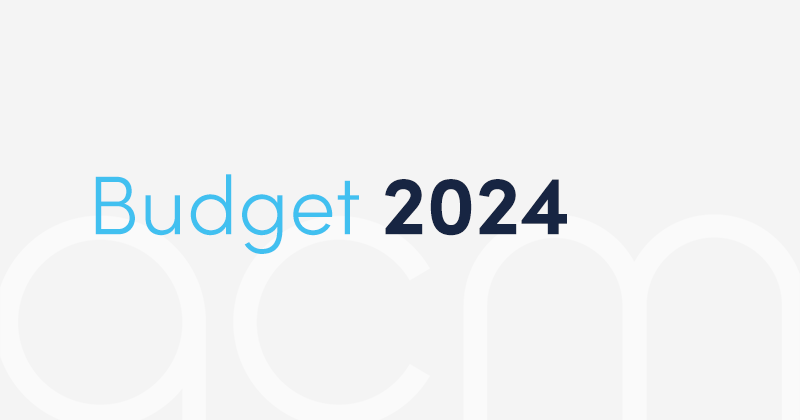
National Insurance
As anticipated the Chancellor announced a further 2% cut in the rate of Employee National Insurance, on top of the 2% cut announced in the 2023 Autumn Statement.
The main rate of Employee National Insurance will therefore drop to 8% from 6 Apil 2024 and is payable on earnings between £12,570 and £50,270.
The upper rate of employee National Insurance remains at 2% and is payable on earnings above £50,270.
No change was made to the rate of Employer National Insurance and this remains at 13.8% on all earnings over £9,100.
The self-employed will also enjoy a cut in National Insurance, with the main rate of Class 4 contributions (being National Insurance paid in respect of self-employed profits) being cut by 2%, on top of the 1% cut announced in the 2023 Autumn Statement.
The main rate of Class 4 National Insurance from 6 April 2024 will therefore drop to 6%. The main rate for the self-employed is paid on profits between £12,570 and £50,270.
The upper rate of Class 4 National Insurance remains at 2% and is payable on profits above £50,270.
High Income Child Benefit Charge (HICBC)
The HICBC regime has always had a degree of unfairness. Where two parents are earning £49,000 each, they will receive Child Benefit in full whereas a household which earns less overall, but where one parent earns over £50,000 some or all of the benefit is withdrawn, irrespective of the other parent’s earnings.
Part of the unfairness arises due to the complexity of compiling information on household income, but the government has confirmed it is committed to removing this unfairness and moving to a system based on household rather than individual income by April 2026.
As an interim measure, the government has raised the threshold at which the HICBC applies from £50,000 to £60,000 and the withdrawal rate has been halved so that Child Benefit is not repaid in full until you earn over £80,000. The change takes effect from 6 April 2024.
Abolition of the tax rules for non UK domiciled individuals
The tax rules for non-domiciled individuals are complex. In an attempt to modernise the system and make it fairer whilst still being competitive, the old non domiciled tax regime will be abolished and a new residence regime will be introduced from 6 April 2025. Under the new regime non-residents can elect to pay tax solely on their UK income and gains in the first 4 years’ of residence. However, in making such an election the individual will lose their personal allowance and Capital Gains Tax annual exemption.
VAT
The VAT registration threshold will increase from £85,000 to £90,000 from 1 April 2024. At the same time the de-registration threshold will go from £83,000 to £88,000.
Capital Gains Tax
The higher capital gains tax rate on residential property has been seen as a deterrent to movement within the housing market. The government has therefore cut the higher rate of capital gains tax on residential property from 28% to 24% in the hope of boosting the availability of housing and encouraging residential disposals.
The lower rate of capital gains tax on residential property will remain at 18% for any gains that fall within the basic rate band.
The change in rate will take effect for disposals on or after 6 April 2024.
Furnished Holiday Lettings tax regime to be abolished
The Chancellor announced that the Furnished Holiday Lettings tax regime will be abolished from April 2025. The change will mean that all rental activity, short term, long term, furnished and unfurnished will follow the same rules for tax purposes.
Draft legislation will be published in due course which will provide more detail in relation to transitional adjustments but this will be a significant change for many Furnished Holiday Let owners and will require forward planning.
Stamp Duty Land Tax
The government has reviewed the use of Multiple Dwellings Relief, a bulk purchase relief in the Stamp Duty Land Tax regime and found that many claims are incorrect or abusive. The relief will, therefore, be abolished from 1 June 2024. Transitional rules mean that the relief can still be claimed for contracts which are exchanged on or before 6 March 2024, regardless of when completion takes place.
UK ISA
The Chancellor announced that the government will introduce a new UK ISA with its own allowance of £5,000 a year. The UK ISA allowance will be in addition to the existing ISA allowance, which currently amounts to £20,000 per annum, and will require investment in UK focused assets. Consultation on the details is ongoing and no date has been given for its introduction but hopefully further announcements will be made in summer 2024.
For more information please contact Amanda Gunter, Tax Partner. Amanda heads up our Tax Team and is based in our Taunton office.


